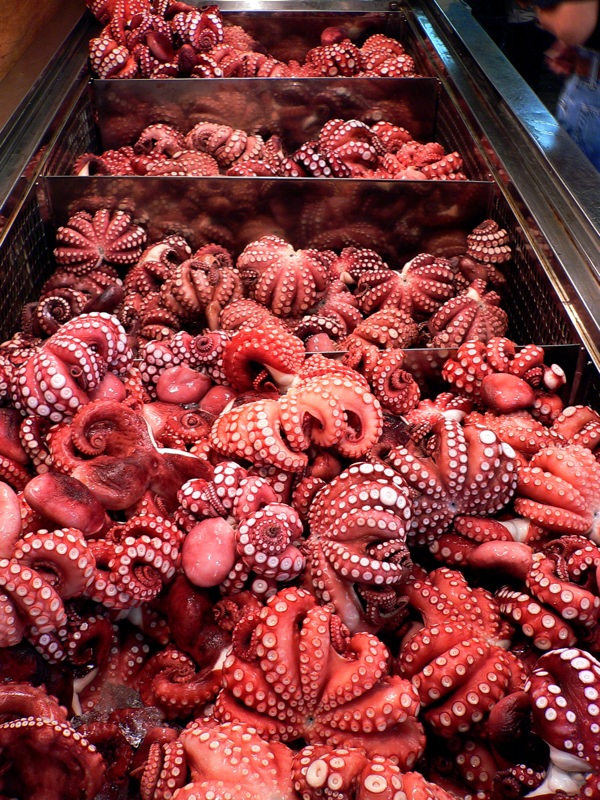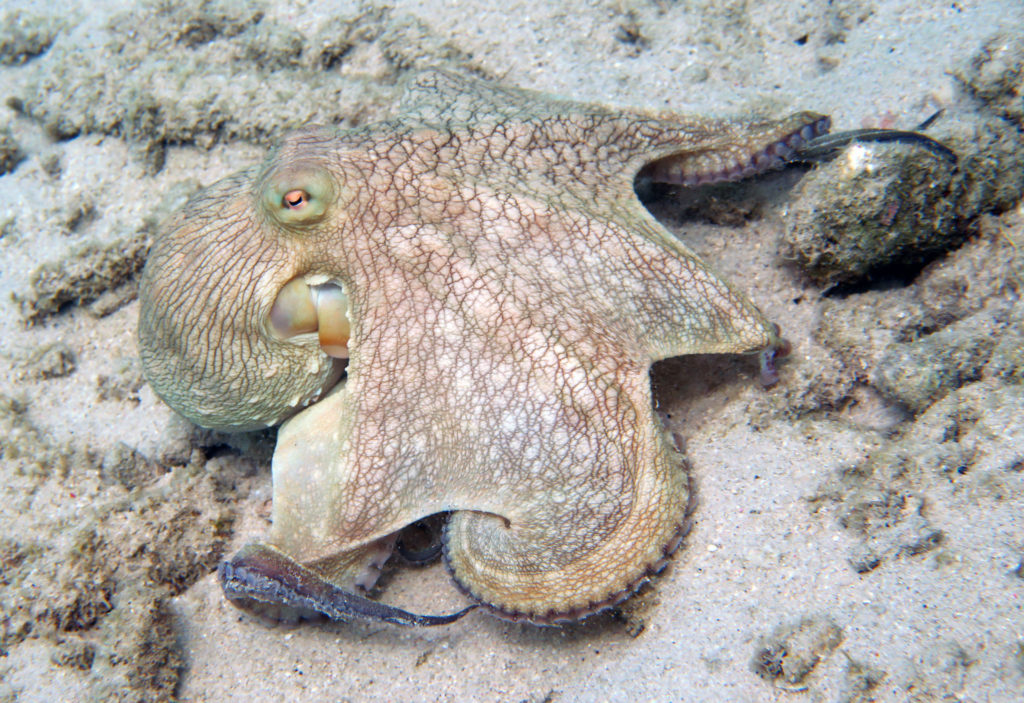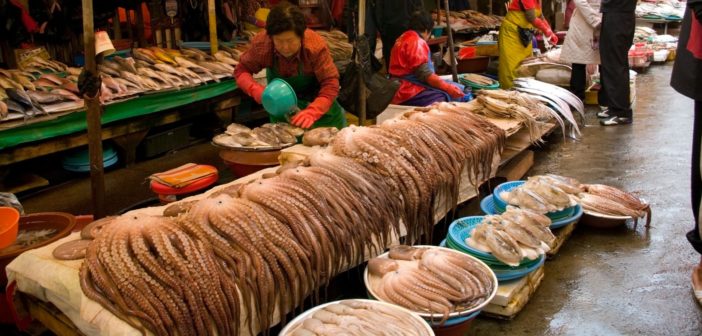Animal farming is among the cruelest forms of animal abuse and exploitation. Those who consider themselves animal lovers should completely avoid eating and using animal ingredients.
Aquaculture is the farming of fish, crustaceans, mollusks, aquatic plants, algae and other organisms. It may not be talked about much, but that doesn’t make it less awful.
According to the Food and Agriculture Organization of the United Nations, “Aquaculture continues to grow faster than other major food production sectors… Global aquaculture production in 2016 included 80.0 million tonnes of food fish and 30.1 million tonnes of aquatic plants, as well as 37,900 tonnes of non-food products. Farmed food fish production included 54.1 million tonnes of finfish, 17.1 million tonnes of mollusks, 7.9 million tonnes of crustaceans and 938,500 tonnes of other aquatic animals” (The State of World Fisheries and Aquaculture, 2018).
Among the millions of tonnes of mollusks are octupuses. Octopus farming is an emerging issue.

There are approximately 300 species of octopuses, more than 100 of which are captured in the wild for food. Since 2008, the reported global annual catch of octopuses has been about 350,000 metric tons, but the actual number could be higher, as catches are often under-reported, particularly in artisanal fisheries. Two-thirds of octopus catches come from Asia, and China alone accounts for more than one-third. The countries that eat the most octopus are Korea, Japan, and Mediterranean countries like Spain, Portugal, Greece, and Italy. Demand is also growing in China, the US, and Australia.
Since the 1980s, consumer demand has grown to the point that the number of wild-caught octopuses has declined due to overfishing. Overfishing of octopuses, combined with growing demand, is driving octopus prices up. And, as global demand for octopus grows, so have efforts to farm them.
To date, octopuses have been mainly caught in the wild, due to challenges in hatching and raising them in artificial conditions. However, recently the possibility of farming them is becoming more of a reality. Attempts to farm octopuses are underway in the Mediterranean, Asia, South America, Australia and the US. At the same time, trials of genetic modifications to accelerate their growth are also underway.
Just like any other type of animal farming, that of octopuses is cruel and immoral. Moreover, intensive aquafarming of octopuses will produce tremendous environmental impacts.
Among these are the loss of natural habitat converted to farms, interbreeding and spread of disease between escaped animals and wild varieties, nitrogen and phosphorus pollution caused by feces and food decomposition, and contamination from fertilizers, algaecides, and excessive use of antibiotics.
However, the biggest environmental concern is the octopus diet. Unlike terrestrial farmed animals, the majority of which are herbivores, many farmed aquatic animal species are carnivorous and need fish protein and oil in their diet.

Octopuses need a lot of food, at least three times their body weight over their short lifetime (they only live for one or two years). Since the demand for octopuses is high, the demand for their food will be as well. In a farmed setting, octopuses would rely on fish meal and fish oil, which would come from already overfished stocks. Around one-third of the global fish catch is currently turned into feed for other animals, half of which goes to aquaculture. Feeding farmed aquatic animals puts additional pressure on wild fish and invertebrates.
Until recently, aquatic animals were exempt from factory farming, and were almost exclusively harvested from their natural habitats. Intensive aquaculture spread in the latter half of the twentieth century and is now one of the fastest growing food industries.
The debate over farming octopuses is growing. A group that included environmental scientists, a philosopher of science and a psychologist wrote an essay in May 2019 on the impacts of octopus farming. They argued that octopuses should never be farmed due to ethical and environmental reasons.
From our point of view, farming any kind of animal is an act of cruelty. Animal agriculture is both cruel to individual animals and environmentally unsustainable.
Respect all animals, go vegan!
Featured image: A vendor displays many octopuses at a market in South Korea. Image credit lamoix, CC BY-SA 2.0.





